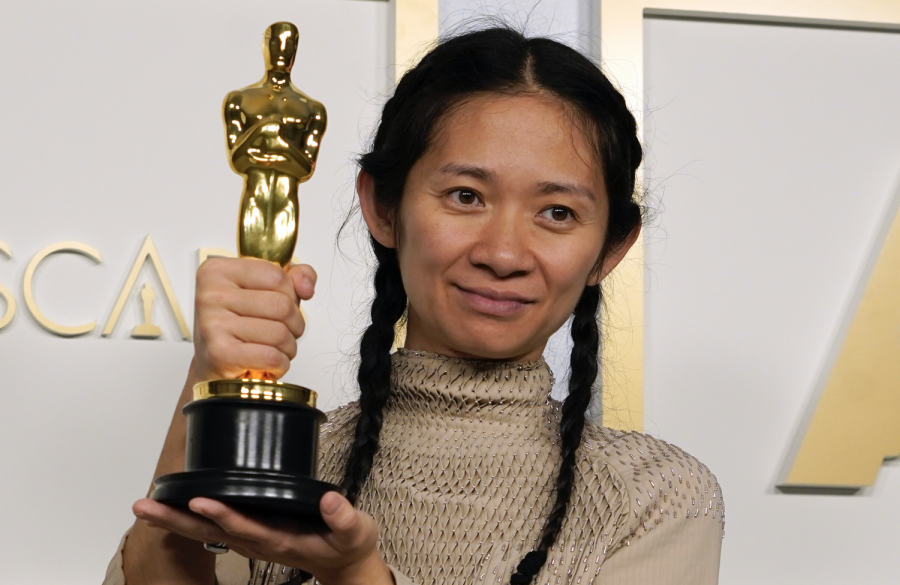Chloe Zhao’s Best Director Academy Award for Nomadland should open doors for other women of color
Chloe Zhao is the first woman of color to win an Best Director Academy Award. She won for her film Nomadland.
Chloé Zhao, an up-and-coming director from Beijing, China, recently became the first woman of color to win an Academy Award for Best Director and the second woman overall to win the award in the 92 years since the Awards began. Being the first woman of color to win this award, Zhao has opened the door for future generations of female directors of color to become a part of the film industry and be given accolades for their work.
The film that won Zhao the Oscar is Nomadland. This film depicts the lives of older Americans who live and travel in their vehicles, mainly for economic reasons, embracing it as a nomadic lifestyle, hence the title. Not only is the focus of the movie, not one typically seen in American films, but Zhao also uses some real-life nomads along with professional actors in the film. “I’m looking for some kind of truth,” Zhao told NPR. “I’m looking for some kind of authentic moments.”
This style of filmmaking that’s so unique to Zhao has been fleshed out since the beginning of her film career. Her first film, Songs My Brothers Taught Me in 2015, detailed “a Lakota boy on bareback on a horse at a gas station, and he’s wearing a Tupac t-shirt.” This created her film style and fascination with combining fiction and documentary. The authenticity of her work is what makes it so appealing, and why she was able to become so successful.
In an industry where women are underrepresented, Zhao’s win is even more remarkable to those looking to begin a career in film and television. In 2019, Statista reported that only 10.6 percent of the film directors in Hollywood are women. Although that number was 4.5 percent higher than reported in 2018, the number remains unnervingly low so far into the 21st century where women have more rights and access to opportunities in more modernized societies.
Despite how male-dominated the industry is, Zhao’s win proves that there is a potential for women to have a greater foothold within this industry. Olympic Heights senior Alejandra Robayo believes, “Her win will encourage other women, especially women of color, to interact with film more, and have a more hands-on role in what film means, like in directing and producing.”
Zhao’s works and success are not only impressive but have become inspirational to young girls and minorities who have an interest in film. “Her win lets minorities know that no matter their heritage or their education, they can make it in a competitive industry if they are passionate and goal-oriented in the message they want to present,” continues Robayo.











